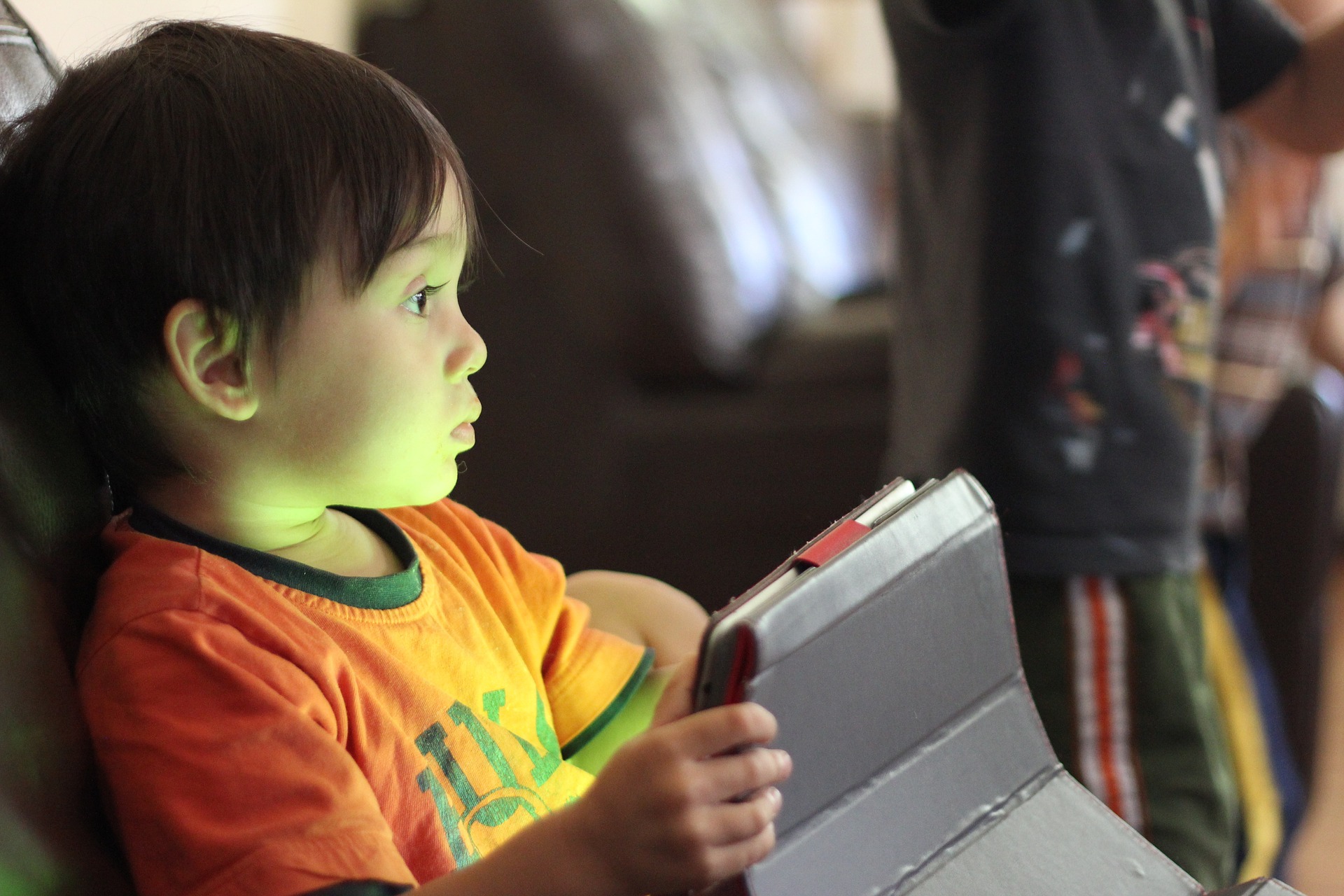 Psychology
Psychology
Screen time and developmental delays in children: a chicken or egg problem
Does screen time precede developmental delays, or do children showing delays in development receive more screen time to manage challenging behaviors? We have addressed this “chicken or egg” question, suggesting that screen time precedes delays in children meeting their developmental milestones.

Technology is now entrenched in the lives of children. Children aged 0-8 are spending over 2 hours per day in front of screens and 98% of children live in a home with an internet-connected device. But what is the impact that technology has on child development? This burning question has arisen, not only from our new technological reality, but also because one in four children are showing delays and deficits in language, communication, motor, and emotional skills.
So far, research has shown concurrent associations between screen time and developmental delays in children. However, concurrent associations only provide a snapshot in time and thus, they cannot speak to "development" per se. Moreover, concurrent associations cannot indicate which comes first, screen time or delays in development. One theory is that screen time leads to developmental delays due to missed opportunities to practice development, while another proposes the opposite, that children showing delays in development receive more screen time to manage challenging behaviors. Answering this "chicken or egg" question will help health practitioners, policy makers, and parents understand the consequences of screen time, as well as guide recommendations for digital media use in young children.
In our study, we collected information on screen time and child development from over 2400 mothers and their children at 2 years, 3 years, and 5 years of age. We asked mothers about their child's total number of screen time hours, as well as their developmental progress using standardized developmental screening tools. While most studies collect information at one point in time, what makes this study unique is the collection of the same information over several time points in the child's life. Doing so allowed us to determine the directional relationship between screen time and developmental delays, in order to answer the question of whether higher screen time leads to delays in meeting developmental milestones or vice versa.
Results of our study show that, on average, children were watching screens, 2.4, 3.6, and 1.6 hours per day at 2 years, 3 years, and 5 years of age, respectively. Results also demonstrated that screen time precedes delays in children meeting their developmental milestones. Specifically, more screen time at 2 years of age was associated with delays in meeting developmental milestones at 3 years; similarly, more screen time at 3 years was associated with delays in meeting developmental milestones at 5 years of age. The reverse associations, from delayed development to increased screen time, was not observed.
An important question to ask is why children show delays in meeting developmental milestones on account of increased screen time. One answer could be that sitting in front of screens precludes children from physically engaging with their environment and fostering developmental skills. Interacting with digital media may also prevent or take the place of in-person interactions between children and their caregivers, interactions which are crucial to a child's healthy development. Future research should provide clarification about why screen time leads to delays in meeting developmental milestones. Another helpful area for research is to assess how the context (with or without caregivers) and quality (streaming versus interactive apps) of media content may impact development.
As the majority of children in our sample are not meeting the recommended pediatric guidelines of no more than one-hour of high-quality programming per day, a helpful recommendation to mitigate screen time would be to develop family media plans. For example, families can establish certain days or times when screens are turned off, or designate areas in the house that are "device-free".
In conclusion, our study answers the "chicken or egg?" question when it comes to screen time and child development. In early childhood, higher screen time is associated with delays in meeting developmental milestones. Ongoing research is imperative to further understand and manage the impacts of technology on children during crucial periods of growth and development and to help determine the benefits and perils of digital technology use in young children.
Original Article:
S. Madigan, D. Browne, N. Racine, C. Mori, S. Tough, Association Between Screen Time and Children's Performance on a Developmental Screening Test. JAMA Pediatr, (2019)Next read: A quantum step forward in high pressure science by Prabudhya Bhattacharyya , Thomas Mittiga
Edited by:
Massimo Caine , Founder and Director
We thought you might like
Recent Rapid Changes in Antarctic Sea Ice Coverage
Jan 8, 2020 in Earth & Space | 4 min read by Claire ParkinsonMore from Psychology
Sharing a political ideology predicts more similar brain activity
Sep 1, 2023 in Psychology | 3.5 min read by Daantje de Bruin , Oriel FeldmanHallHow do people see, simplify, and solve problems?
Aug 25, 2023 in Psychology | 3.5 min read by Mark HoWomen are human too, but not according to the internet
Jul 21, 2023 in Psychology | 4 min read by April BaileyDeaf to arguments? How conspiracy beliefs shape opposition to wind farms
Jun 12, 2023 in Psychology | 3 min read by Kevin WinterCan Training Make Policing Fairer and More Effective?
May 22, 2023 in Psychology | 3 min read by David Weisburd , Cody TelepEditor's picks
Trending now
Popular topics


